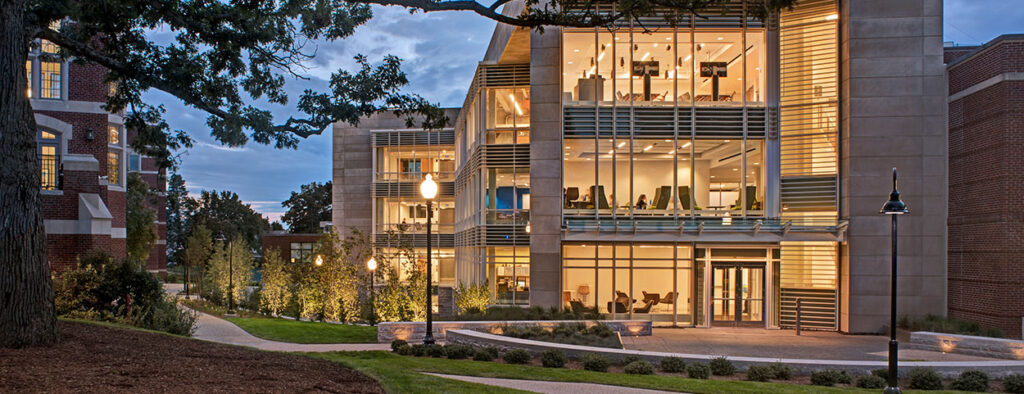Facilities & Equipment
Indoor Facilities
The Biology Department is housed in a four-building Science Complex (Hickey, Sowa, and Albertus Magnus Halls, and a new addition). The new four-story addition was opened in 2018 as part of a $55 million expansion/renovation project. The Science Complex includes classrooms geared toward active learning, lecture halls, and state of the art teaching and research labs.
Specific to the Biology Department, the Science Complex houses:
- Vivarium
- Microscopy suite
- Cell culture room
- Fred M. Roddy Anatomy and Physiology Lab
- Aquatic organism housing with 15 tank recirculating aquarium system and large touch tanks with chillers
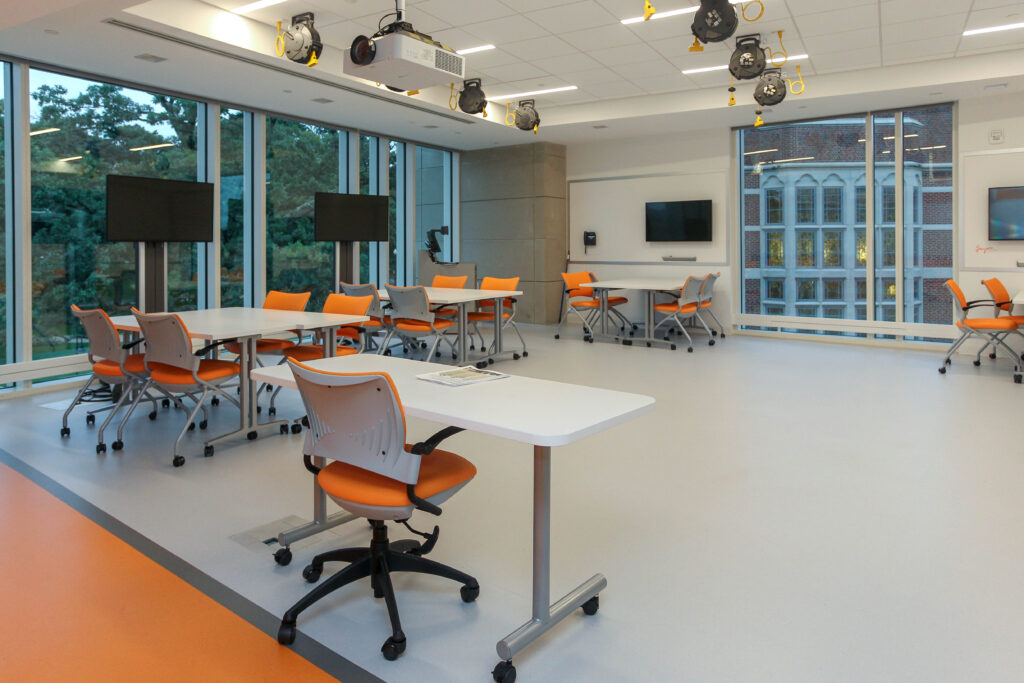
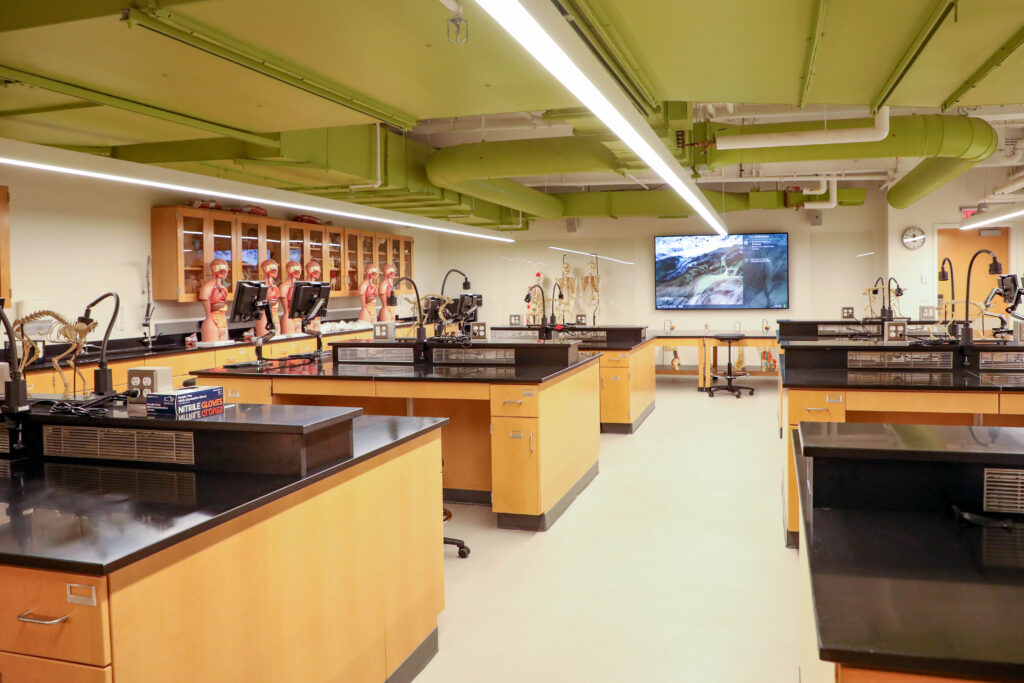
Outdoor Facilities
Providence College also hosts multiple outdoor classrooms, and 3+ rainwater retention gardens and an arboretum-style tree management system, which function as living laboratories for both teaching and research.
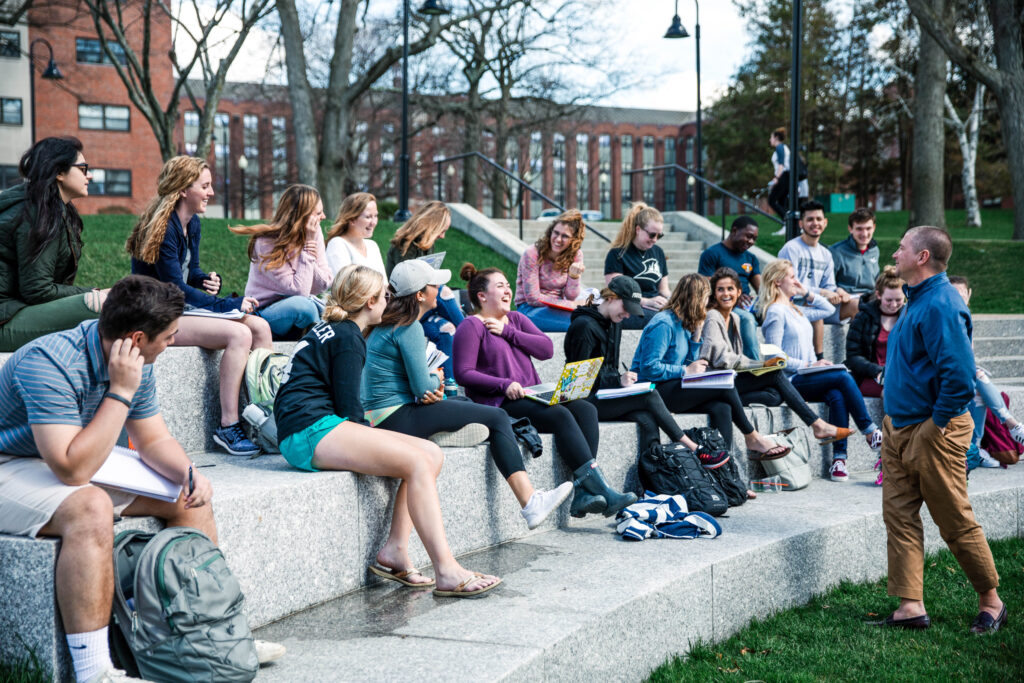
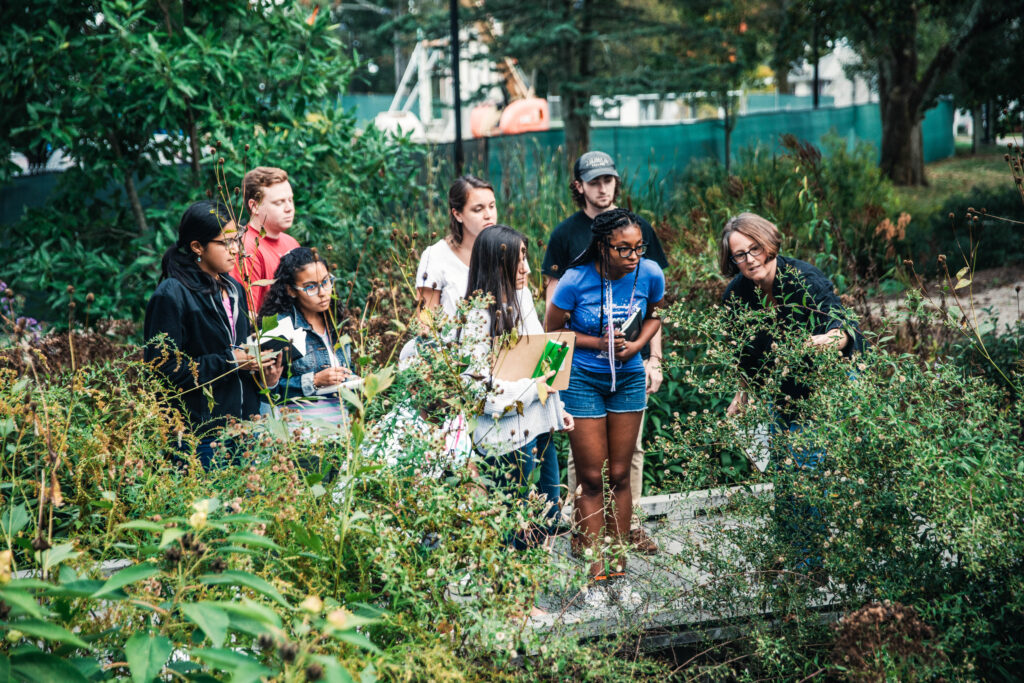
Equipment
The Biology Department has secured equipment and instrumentation for diverse research purposes, including:
Sample Collection
- Insect nets
- Plankton nets and other marine and aquatic sampling equipment
- Small inflatable boat with 8hp motor
Processing & Analysis: Lab
- Allegra centrifuge
- Applied Biosystems thermal cycler
- Biotek Cytation 3 plate-reader with monochromator
- Elementar UNICUBE organic elemental analyzer (CHNS)
- Eppendorf Mastercycler
- HarvestRight scientific freeze-drier
- Implen NanoPhotometer
- Instron mechanical testing system
- Leica VT000S microtome
- LI-COR 7000 CO2/H2O gas analyzer
- LI-COR LCi infrared gas analyzer
- Maven small animal metabolic system
- Mettler-Toledo electronic microbalances (5- and 6-place)
- Nexcelon Bioscience RF-150 cellometer
- Sable Systems Apollo human metabolic measurement system
- Standard BioTools, Inc. EP1 SNP genotyping system
- Turner Biosystems GloMax luminometer
Processing & Analysis: Field
- Hach Dr3900 spectrophotometer
- Hach LDO probe
- Hach redox probe
- Hansatech Handy PEA system
- Nortek vector current meter
- Opti-Sciences chlorophyll fluorometer
- Opti Science GFL-1 portable water fluorometer
- Spectrum Technologies SPAD 502 chlorophyll meter
Rearing
- Darwin Chambers insect rearing cabinet
- Percival plant growth chambers
- Percival incubators
Imaging
- Box Chemi XRQ gel imaging system
- Canon camera bodies and lenses
- Fastec Imaging monochrome high speed camera
- Fluke TiX-580 thermal imaging camera
- Keyence BZ-X800 fluorescence microscope
- LaVision Gig E camera
- Leica M165 FC microscope
- Zeiss LSM-laser scanning microscope
- Zeiss MicroTech Stemi scope
For more nearby core research facilities, visit CoreRI for a searchable database for facilities across Rhode Island. Many of these facilities are right here in Providence, RI.
Partnerships
Rhode Island IDeA Network of Biomedical Research Excellence (RI-INBRE) program is a statewide network designed to build the biomedical research capacity of Rhode Island institutions, by supporting and developing talented individuals committed to research careers in Rhode Island. The research themes of the RI-INBRE program are: cancer, environmental health sciences, and neuroscience. Providence College is one of nine participating research institutions including the University of Rhode Island, Brown University, Bryant University, Johnson and Wales University, Rhode Island College, Roger Williams University, Salve Regina University, and the Community College of Rhode Island.
Rhode Island Costal Ecology Assessment Innovation and Modelling (RI-CAIM) is a collaborative project supported through the National Science Foundation and the State of Rhode Island. This program supports marine science and engineering research at eight Rhode Island institutions, including Providence College. Through RI-CAIM, Providence College has access to core facilities at the University of Rhode Island, Brown University, Bryant University, Rhode Island College, Rhode Island School of Design, Roger Williams University, and Salve Regina University.
Southeastern New England Educational and Charitable Foundation (SNEC) is a non-profit with the mission to improve access to higher education for students with an interest in historic preservation or environmental conservation. Each year, SNEC solicits proposals from Providence College faculty to fund experiential learning activities, either in or outside the classroom, related to environmental conservation. Examples of projects funded by SNEC here.
Department of Biology
Science Complex
1 Cunningham Square Providence, Rhode Island, 02918
Julie Coccia
Administrative Assistant
Science Complex Administrative Suite 0106A
401.865.2585
401.865.1438
jcoccia@providence.edu
Dr. Patrick Ewanchuk
Department Chair
Science Complex Administrative Suite 0106
401.865.2394
ewanchuk@providence.edu





